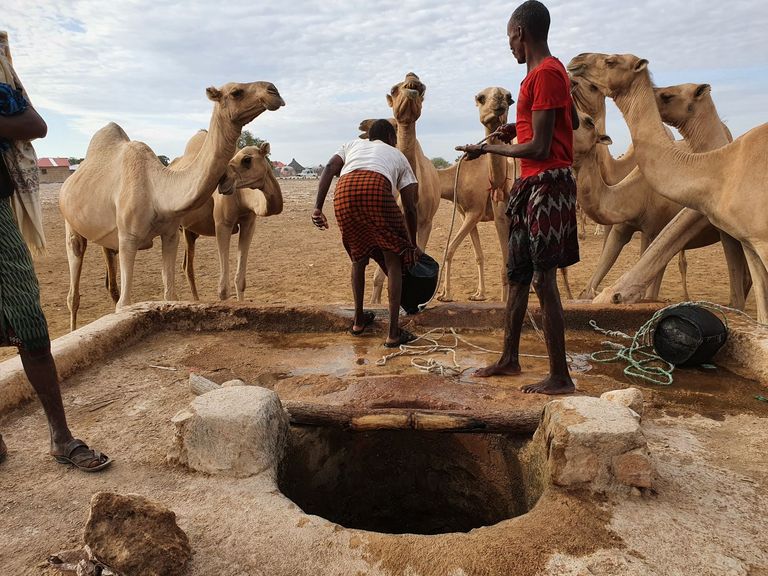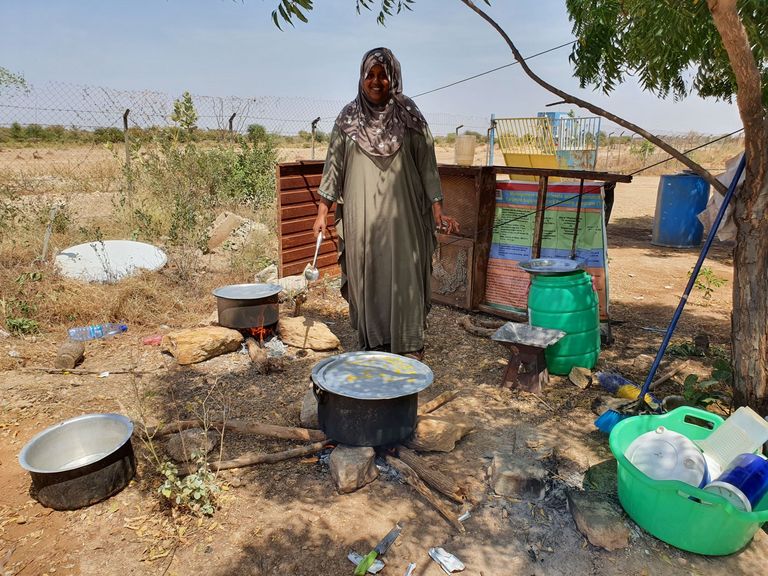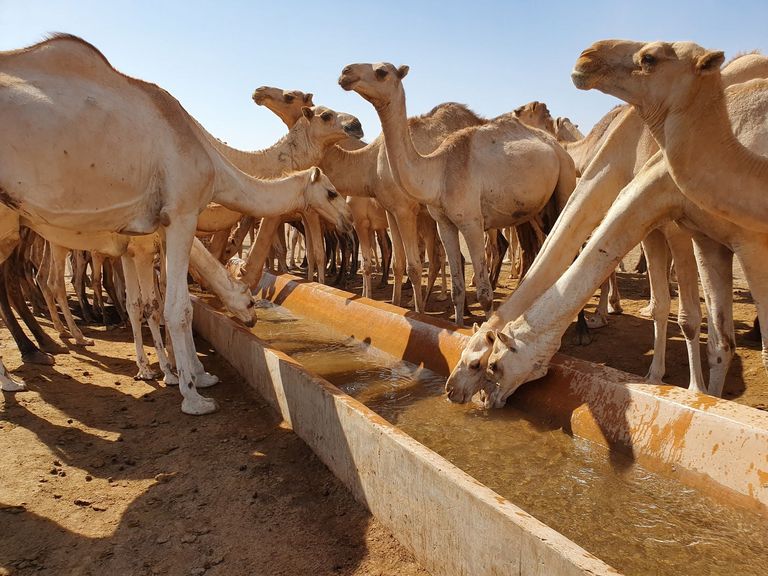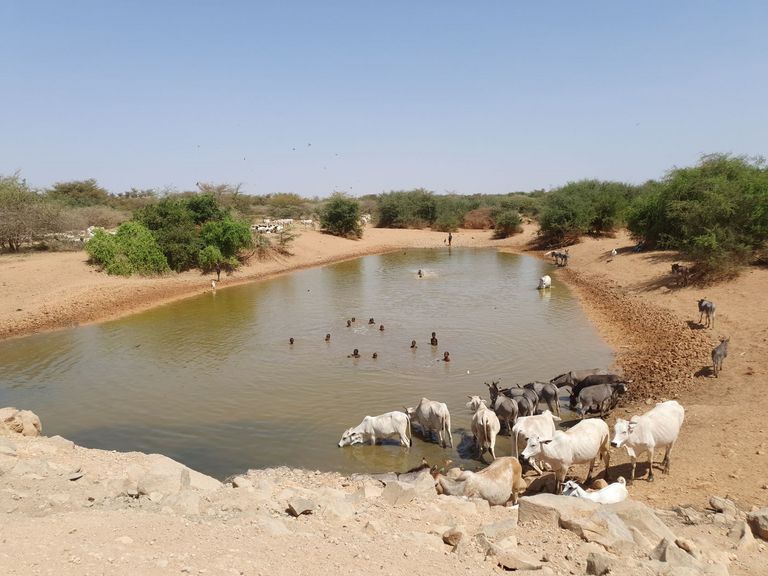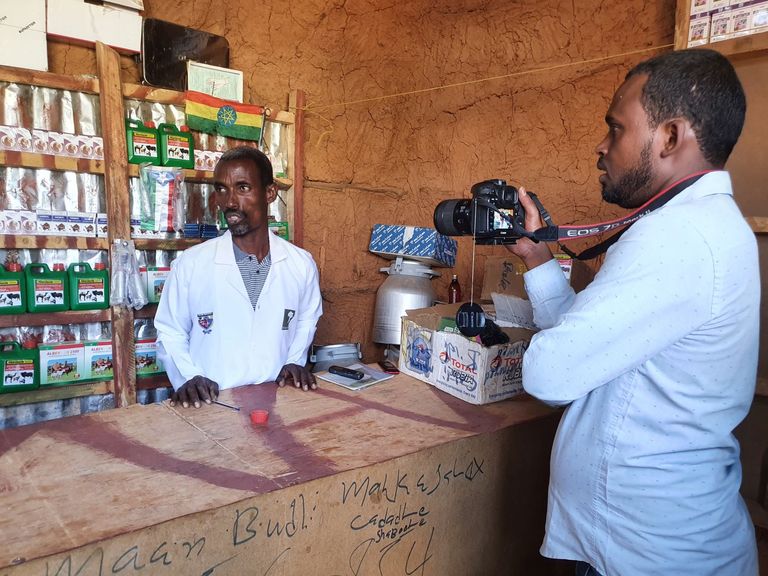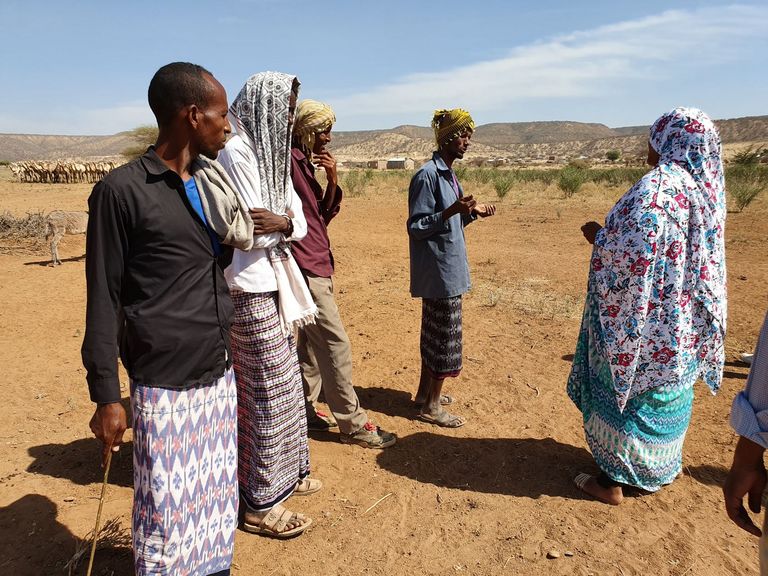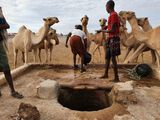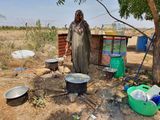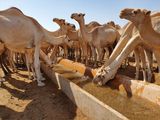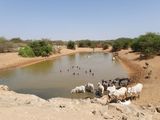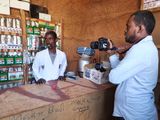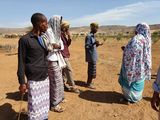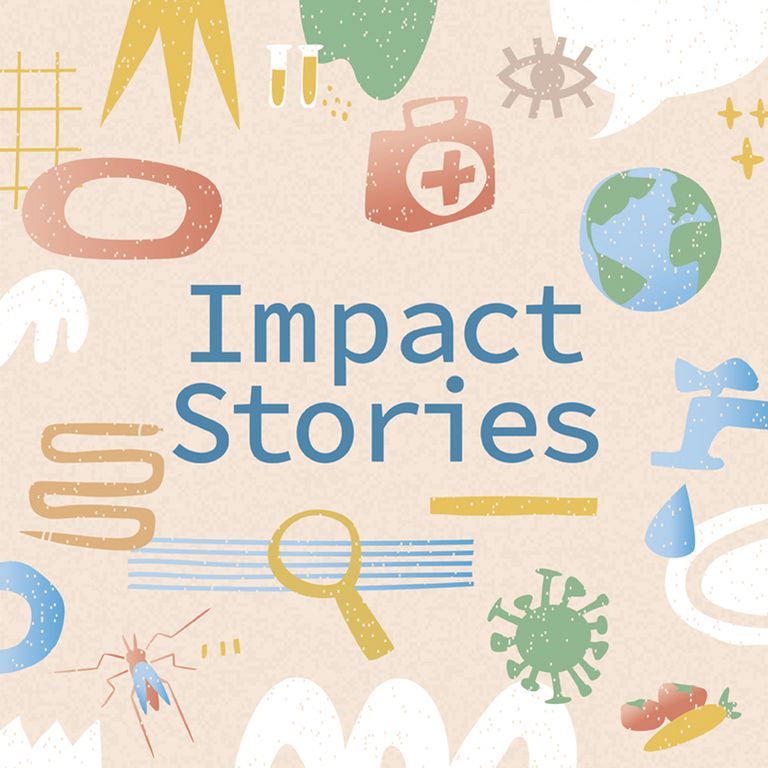

Over 30 million pastoralists in Ethiopia, Somalia and Kenya are affected by inadequate access to essential healthcare and a poorly developed veterinary service for their livestock. Pastoralist communities are subjected to a variety of health problems, some of which stem from the population’s close interaction with and dependence on livestock (e.g. Rift Valley Fever, Q-fever, rabies and milk-borne diseases) and the rest being largely preventable communicable diseases and nutritional disorders. Both the public health and animal healthcare systems in the region are faced with multiple challenges. These include limited access to health services, weak coordination among providers, poorly equipped and understaffed primary healthcare units, and shortage of drugs and medical supplies.
Integrated health systems for pastoralist communities
It is these hard-to reach pastoralist communities in the arid and semi-arid lowlands of the region living in Somalia, Northern Kenya, South and South-Eastern Ethiopia which are the focus of SDC’s (Swiss Agency for Development and Cooperation) strategy and its health programme in the Horn of Africa. One Health is one of the four thematic pillars of the health sector, alongside maternal and child health, private sector engagement and sexual and gender-based violence. The goal of the health programme is to improve the access of the most vulnerable population (poor pastoralists, internally displaced people [IDPs], urban poor, women and children) to affordable high-quality health care. One of the initiatives in the context of the thematic pillar One Health is the establishment of an interdisciplinary centre of excellence at Ethiopian Jigjiga University.
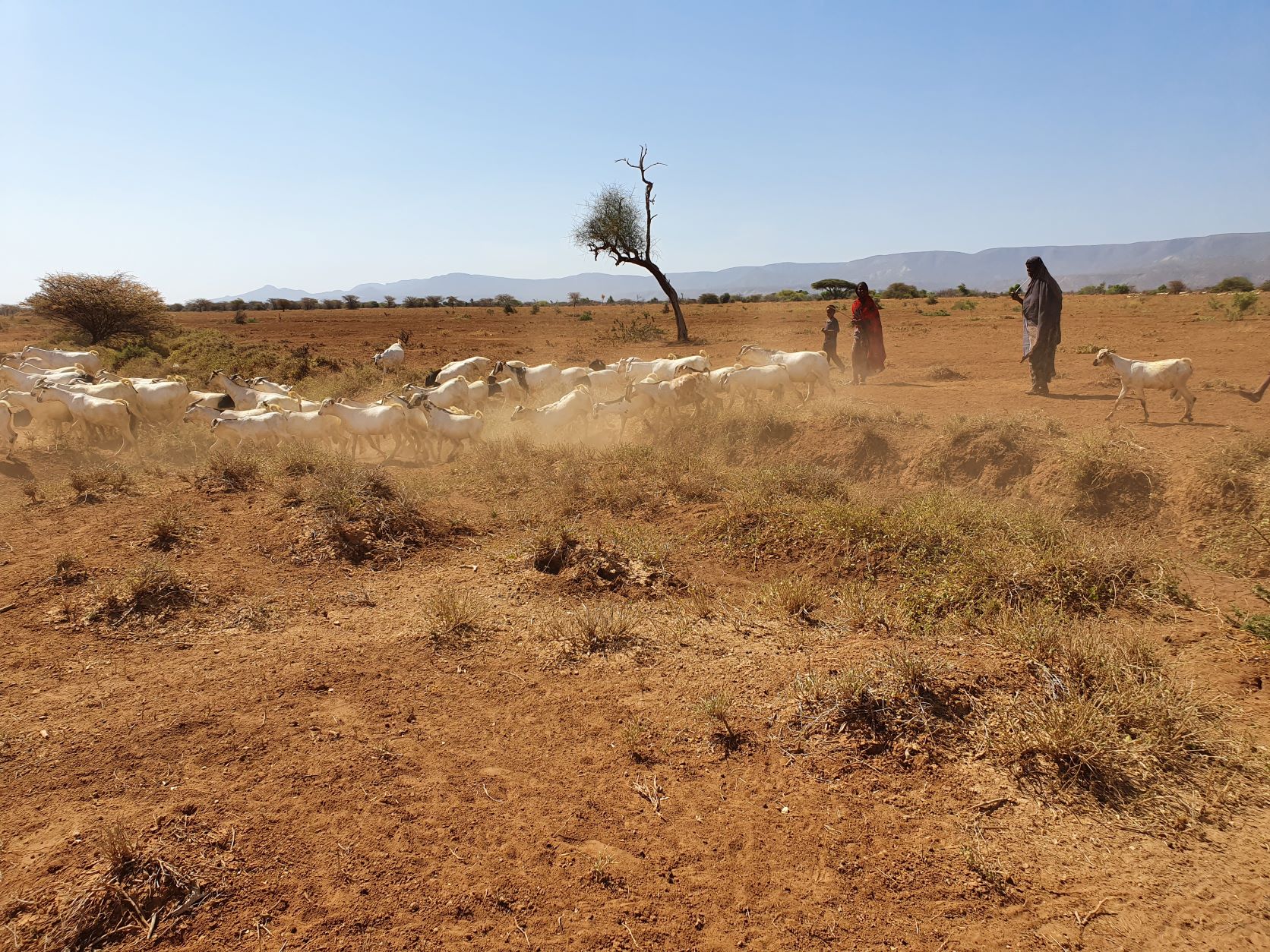
In 2016, the Ethiopian government invited international experts for a Joint External Evaluation to assess its health system. This evaluation established a baseline measurement of the country’s capacity and capabilities to prevent, detect and rapidly respond to public health threats. In connection to this, the National One Health Steering Committee (NOHSC) and the Technical Working Group (TWG) were formally established, comprising four core governmental ministries (the Ministries of Health and Agriculture, the Ethiopian Wildlife Conservation Authority [which is under the Ministry of Culture and Tourism] and the Ministry of Environment, Forest and Climate Change) and other relevant partners within the human, animal and environmental health mandates. These development partners, such as the UN’s Food and Agriculture and World Health Organizations, USAID, universities and NGOs, support the activities of the NOHSC. This has allowed a closer coordination between the different partners. To accelerate the multi-sectoral collaboration and reduce the risks of health threats at the human-animal-environment interface in the country, a five-year national One Health strategic plan (2018–2022) was developed. This national One Health structure has similar collaborative structures at the level of the regional states and zones in the form of Regional One Health Taskforces. The Jigjiga University One Health Initiative (JOHI) contributed in establishing these taskforces.
The Jigjiga University One Health Initiative (JOHI)
The Jigjiga University One Health Initiative is one of Ethiopia’s ad-hoc multi-sectoral engagements to preclude threats from zoonotic diseases. It is a research and development partnership between Jigjiga University (JJU) and Armauer Hansen Research Institute (AHRI) in Ethiopia and the Swiss Tropical and Public Health Institute (Swiss TPH), funded by SDC. The aim of the initiative is to establish research on health as well as teaching and development capacities in this field at Jigjiga University. Integrated health systems will then lead to improved health and wellbeing of pastoralist communities in the Somali Regional State of Ethiopia (SRS) over a period of 10 to 12 years in two phases (2015-2025).
The first phase of implementation concentrates on building up the research and teaching capacities of JJU and establishes systems knowledge on human and animal health from 2015-2020. Jigjiga University is the only educational and research institution in the entire Somali Regional State of Ethiopia (see Box). Around 10,000 students are currently enrolled at the university. Locally adapted interventions have been developed from early research results and are currently being tested. All research planning is based on regularly recurring participatory stakeholder processes engaging academic scientists with authorities and communities for the identification of priorities and the validation of intervention plans. Good practices tested by JJU can then be adopted by the regional government. The community would thus benefit from this increased knowledge through better targeted interventions and services by public and animal health authorities. For example, a novel tuberculosis control intervention adapted to mobile pastoralists is currently being tested. Similarly, testing is in progress of portable water filters to provide safe drinking water.
The next phase, starting in April 2021, will engage to further improve the health and resilience of Somali pastoralists and their animals. JJU is to become a centre of excellence in One Health, which would contribute to establishing the health research capacity of two other universities, the University of Hargeisa and the National University of Somalia. These interventions can thus contribute to improved human and animal health, environmental management and livelihood opportunities for the region as a whole.
JOHI is using synergies with another One Health project, “One Health Units for Humans, Environment, Animals and Livelihoods” (HEAL). This regional project promotes sustainable rangeland management and access to integrated human and livestock health services in Ethiopia, Somalia and Kenya. While JOHI focuses on research and education, HEAL strengthens the development of integrated One Health services that are more accessible to pastoral groups.
What has been reached so far?
The Jigjiga University One Health Initiative contributed to the establishment of a coordination mechanism, the so-called Somali Regional One Health Taskforce, in July 2019. The taskforce consists of representatives from the Regional Health bureau, the Regional livestock and pastoralist development bureau, Jigjiga University (as a secretary), and the Bureau of agriculture and natural resources. In addition, the representatives from media, UN agencies and NGOs participate. The goal of this taskforce is to coordinate One Health initiatives in the region and establish mechanisms for collaboration and coordination of multi-sectoral engagements. These mechanisms include, thus far, sharing reports of human and livestock disease outbreaks, coordinating the response and conducting after-action review. In January 2020, JOHI established a molecular diagnostic laboratory at Jigjiga University. In March 2020, the Somali Regional Government suggested to JOHI that the new laboratory could be used for COVID-19 diagnosis. Today, the JOHI laboratory is the only COVID-19 diagnostic centre in the Somali Region of Ethiopia and has done several thousand tests. Currently, a survey is planned to assess the proportion of the population exposed to SARS-CoV-2 virus.
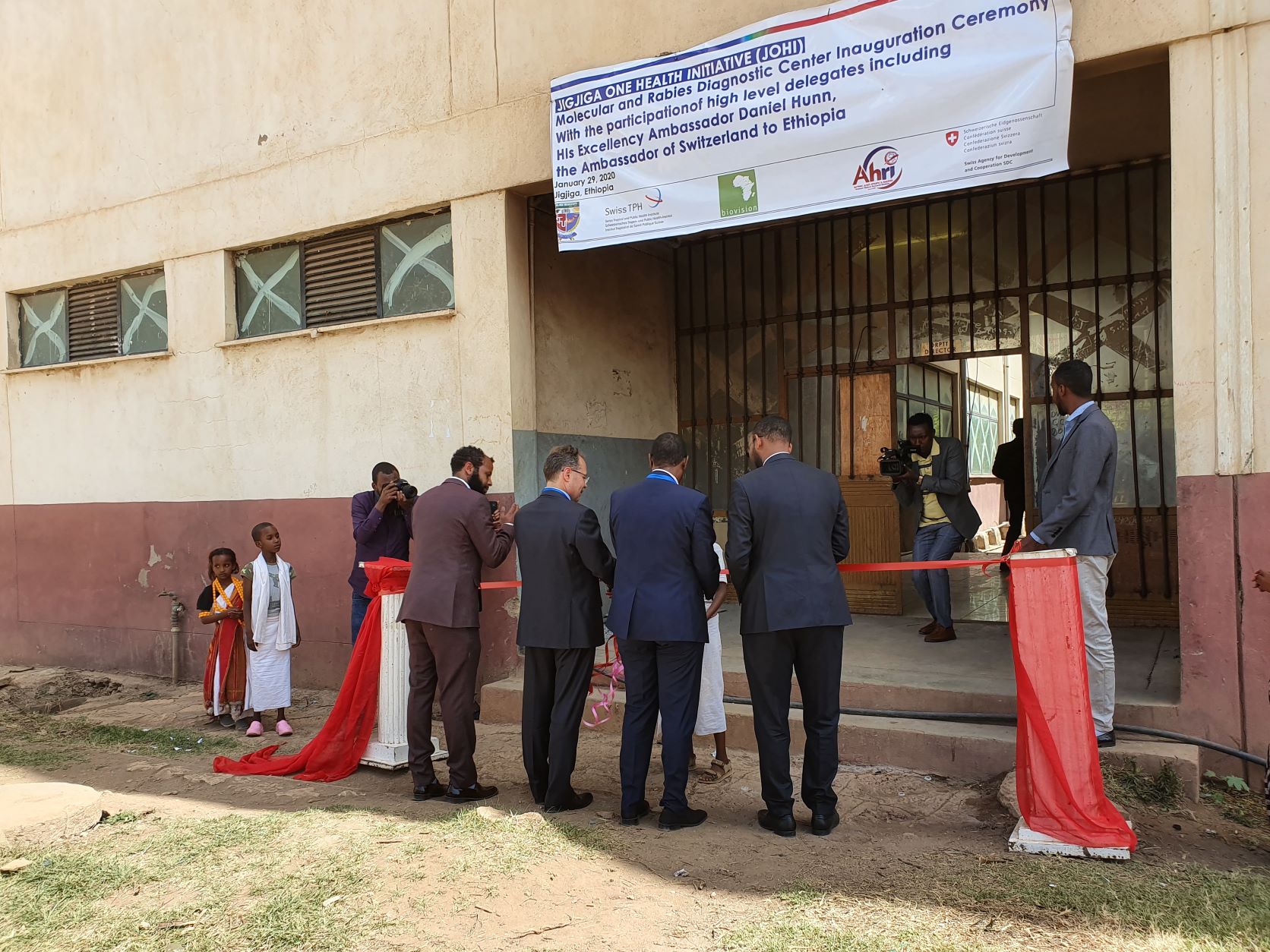
The way forward
The JOHI project at Jigjiga University contributes to research and development capacities for a future centre of excellence in One Health research in the Somali Regional State of Ethiopia. Locally adapted interventions for better health and wellbeing of the pastoralist and agro-pastoralist communities and their animals lead to a better resilience against the odds of climatic and social threats. Strengthening of communities and associative movements contributes to better livelihoods, focusing on women and remote communities. Contributions to novel adapted policies are bolstering institutions at regional and federal level and in the greater Horn of Africa.
Pastoralists in the Somali Regional State
Jakob Zinsstag is a veterinary epidemiologist. He is deputy head of the Epidemiology and Public Health department at the Swiss Tropical and Public Health Institute (Swiss TPH), an associated institute of the University of Basel.
Lensse Gobu is Health Programme Officer for the Swiss Agency for Development and Cooperation, Embassy of Switzerland in Addis Ababa, Ethiopia.
Rea Tschopp is a veterinary epidemiologist. She is head of the One Health Unit at the Armauer Hansen Research Institute and project group leader (One Health East Africa) at Swiss TPH.
Mohammed Ibrahim Abdikadir is a veterinary epidemiologist. He is assistant professor at the College of Veterinary Medicine of Jigjiga University, Ethiopa.
Credits: This article was published in Rural 21. The International Journal for Rural Development in April 2020, volume 54.
